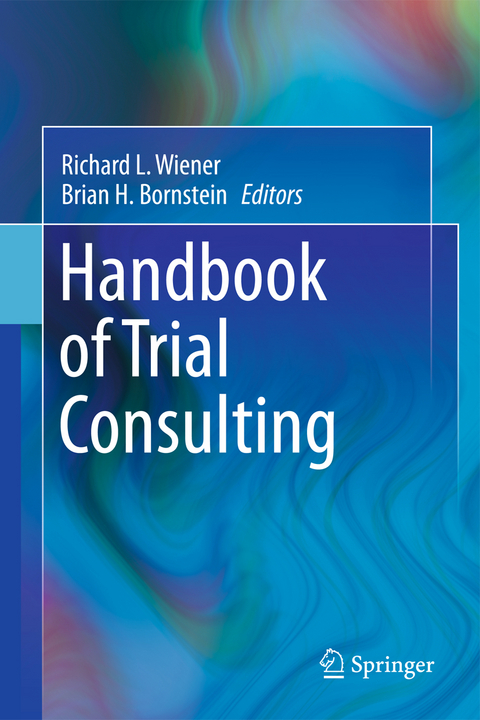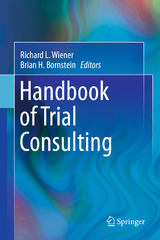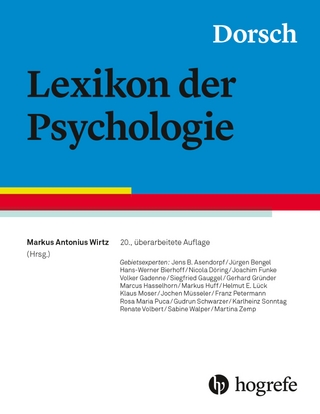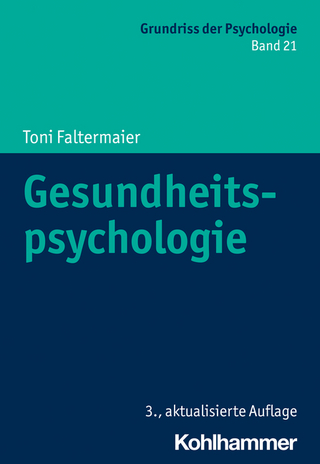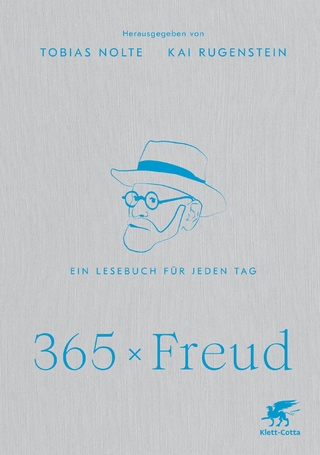Handbook of Trial Consulting
Springer-Verlag New York Inc.
978-1-4419-7568-3 (ISBN)
This volume will be a handbook that treats trial consulting as applied psychology. The purpose of the volume will be to collect the viewpoints of leaders in the field of psychology and law who apply the discipline’s theoretical models, methods, and ethics to assist litigators to try cases in the most effective way possible. As a whole, the collection of chapters will describe the theory, business, and mechanics of trial consulting for those interested in learning and practicing the profession. However, it will do so from the perspective of organized theories of jury-decision making. In other words, the work of juror researchers will inform the recommendations and suggestions in the handbook. The volume consists of six sections, each pertaining to a different topic. Multiple chapters with different authors will cover each topic. The topics and corresponding seven sections will be 1) An Introduction to the Theory and Psychology of Jury Decision-Making, 2) Applied Research Methodologies for Trial Consultants, 3) Education and Ethical Considerations for Trial Consultants, 4) Preparing and Cross Examining Witnesses, 5) Technology and Demonstrative Evidence at Trial, and 6) Special Topics in Trial Consulting. Each section will begin with the editors’ short introduction reviewing that section and explaining its goals, objectives, and content. Separate individuals, recognized as leaders in their areas will write the remaining chapters in each section. These individuals come from the fields of both psychology and law, and represent viewpoints on these topics from a practice-oriented perspective, but a perspective that is emerges from research results. They are affiliated with a number of academic institutions, including University of Nebraska, John Jay College of Criminal Justice, University of Texas, University of Chicago Simon Fraser University, and private law firms.
Professor Wiener received his Ph.D. from the University of Houston and his Masters Degree in Legal Studies at UNL. He was professor of Psychology at Saint Louis University (1982- 2000) and most recently chair of the Department of Psychology at Baruch College, City University of New York. In 2002 Dr. Wiener joined the Law-Psychology Program (as director) and the Social Psychology Program at UNL. He is the former editor of Law and Human Behavior, the official journal of the American Psychology/Law Society (Division 41 of the APA). Dr. Wiener's research applies theories of social cognition to problems in legal decision-making. Among the topic areas he has investigated are perceptions of sexual harassment and jury decision making. Specifically, Dr. Wiener studies the role of generic prejudice in criminal cases and he studies how jurors reach capital murder decisions in assigning penalties. The National Science Foundation has funded and continues to fund this work. Currently, Dr. Wiener applies social cognitive theories of emotion, motivation, dual process of cognitive processing to explain how legal actors reach decisions relevant to law and policy. Other topics of investigation include the role of implicit attitude activation in generic prejudice, the role of emotions in jury judgments as they develop across the presentation of criminal cases, the role of mortality salience in death penalty judgments, and the role of counterfactual thinking in negligence judgments. Dr. Wiener teaches courses at UNL on behavioral sciences and the law and legal decision making.
An Overview and General Model of Juror and Jury Decision-Making.- The Story Model Theory of Jury Decision Making.- Statistical Models of Jury Decision Making.- Focus Groups.- Systematic Jury Selection.- Persuasion and Argument Development.- Mock Trial Research.- Survey Research.- Training and Education.- Ethical Issues.- Professional Issues.- Reform Movements.- Lawyers View of Trial Consulting.- Judge’s View of Trial Consulting.- Eyewitness identification and lineups.- Admissibility of Expert Witness Testimony.- Witness Preparation.- Selecting Experts.- Technology and Trial Consulting.- The Use of Demonstrative Evidence.- Technology II : The Role of the Trial Consultant.- Psychopathy.- Discrimination.- Change of Venue and Pretrial Publicity.- Assessment of Damages I: Mental and Social Health.- Assessment of Damages II: Neuropsychological Concerns.- Decision Making about Damages.- Jury Instructions.- The Future of Trial Consulting.
| Erscheint lt. Verlag | 12.5.2011 |
|---|---|
| Zusatzinfo | X, 409 p. |
| Verlagsort | New York, NY |
| Sprache | englisch |
| Maße | 155 x 235 mm |
| Themenwelt | Geisteswissenschaften ► Psychologie ► Allgemeines / Lexika |
| Medizin / Pharmazie ► Medizinische Fachgebiete ► Psychiatrie / Psychotherapie | |
| Recht / Steuern ► Strafrecht ► Kriminologie | |
| ISBN-10 | 1-4419-7568-3 / 1441975683 |
| ISBN-13 | 978-1-4419-7568-3 / 9781441975683 |
| Zustand | Neuware |
| Haben Sie eine Frage zum Produkt? |
aus dem Bereich
